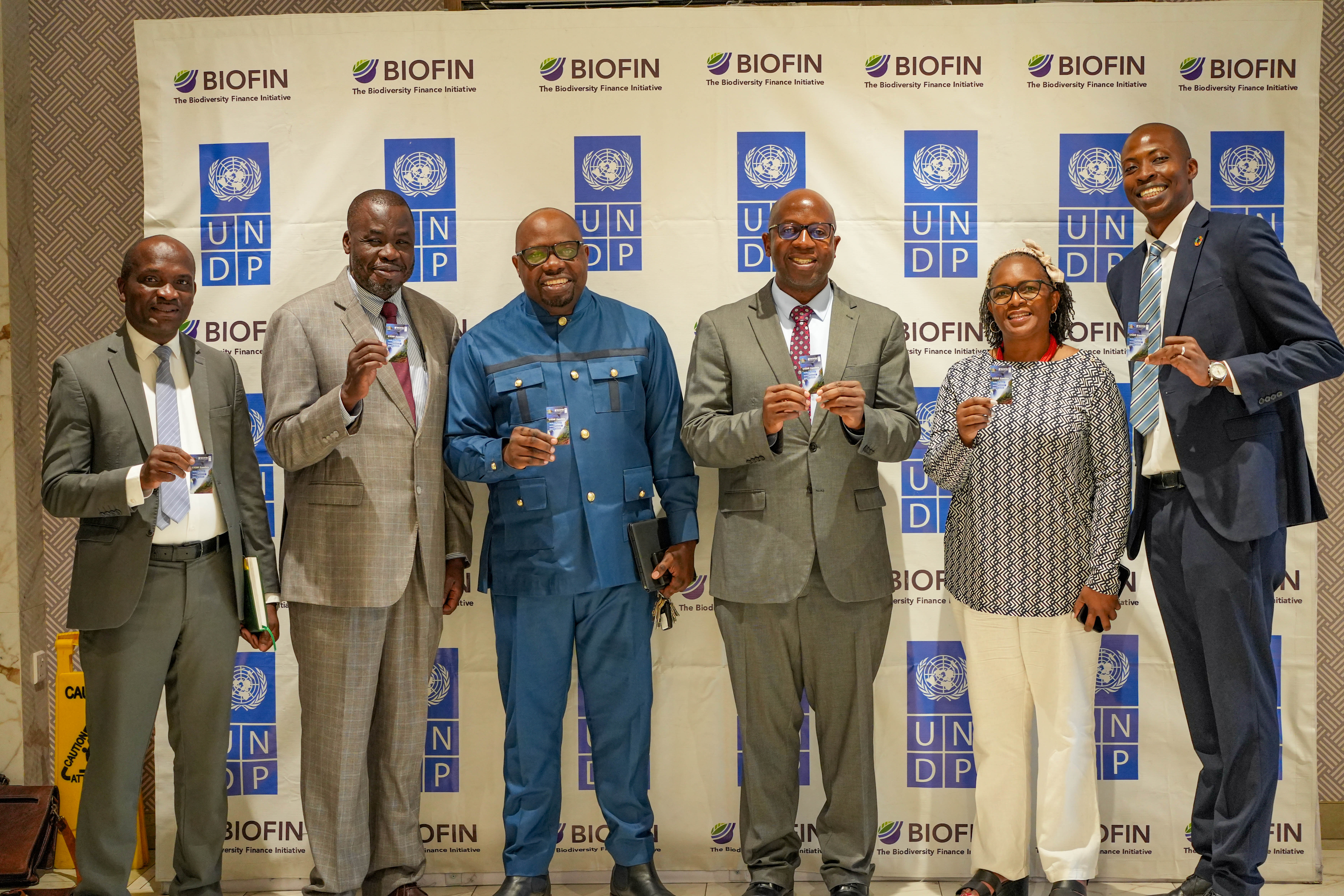
Lusaka, Zambia, 24 April 2025 — The Biodiversity Finance Initiative in Zambia (BIOFIN Zambia), in partnership with the Ministry of Green Economy and Environment, officially launched Zambia’s first-ever Study on Nature-Related Financial Risks, covering all four financial sub-sectors: banking, capital markets, pensions, and insurance.
The study, made possible with support from the United Kingdom’s Department for Environment, Food and Rural Affairs (DEFRA), serves as a blueprint for financial sector reform—and a clear signal that Zambia is ready to lead on nature-smart finance. The launch event drew a diverse audience of policymakers, regulators, industry leaders, and sustainability experts.
“This is not merely an academic exercise. What we now have is a tool that can inform how we build a more resilient financial system - one that accounts for the real costs of environmental degradation and biodiversity loss,” - Dr. Douty Chibamba, Permanent Secretary, Ministry of Green Economy and Environment
Why This Study Matters
Zambia’s economy is deeply intertwined with nature. From rain-fed agriculture and hydropower to ecotourism, natural ecosystems form the backbone of economic activity. Yet, until now, these dependencies had not been measured or integrated into financial decision-making.
The study addresses this gap by analyzing four core sub-sectors—banking, insurance, pensions, and capital markets—and explores:
- Economic dependencies and impacts on nature
- Ecological services are critical to financial stability
- Sectoral exposure to environmental degradation
- Practical models and tools to mitigate risk, including the TNFD LEAP framework and Integrated Assessment Models.
Reflections and Real Talk
A panel discussion brought together regulators and top sustainability practitioners, including the Securities and Exchange Commission, the Pensions and Insurance Authority, PwC Zambia, and EY Zambia.
The discussions zeroed in on key issues such as disclosure gaps, regulatory reform considerations, institutional readiness, and the urgent need for awareness at all levels of the financial sector.
The Big Picture: What’s at Stake
“The study doesn’t just spotlight risks—it gives us tools and direction. It’s tailored for Zambia’s financial sector and aligned with global best practices,” — Dr. James Wakiaga, UNDP Zambia Resident Representative
The findings are clear: Zambia’s financial sector is highly exposed to nature-related risks. Activities like commercial lending, capital markets investment, and insurance underwriting are deeply dependent on healthy ecosystems—from flood regulation to fertile soils and clean water.
If these systems collapse, the ripple effects would impact agriculture, mining, energy, and other critical sectors.
Key Takeaways from Study
- Over 90% of Zambia’s financial portfolios—across banking, capital markets, insurance, and pensions—are significantly dependent on ecosystem services.
- 75% of Zambia’s commercial loans are moderately dependent on five or more ecosystem services.
- The insurance sector shows the highest overall risk exposure, with 36% of policies highly dependent on nature.
- Sectors most reliant on nature, such as agriculture, mining, and manufacturing, are also among the most environmentally impactful, highlighting an urgent need for nature-integrated financial strategies.
From Insight to Action
The report makes a clear call to action:
- Integrate nature-related risks into financial activities and decision-making
- Align financial sector operations with international frameworks like the Taskforce on Nature-related Financial Disclosures (TNFD)
- Leverage science-backed tools to measure, manage, and mitigate ecological threats
This proactive approach goes beyond risk prevention. It opens pathways to green finance innovation, accelerates resilience building, and helps deliver on Zambia’s biodiversity and sustainable development goals.
Categories
Archives
- March 2026 (1)
- February 2026 (3)
- January 2026 (3)
- December 2025 (2)
- November 2025 (5)
- October 2025 (5)
- September 2025 (2)
- August 2025 (10)
- July 2025 (9)
- June 2025 (5)